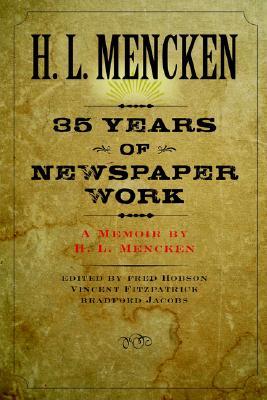This volume is the last substantial legacy provided by the author’s will which, operating on the principle of time-release, has already resulted in the publication of the Diary of H.L. Mencken and the availability of many useful letters and papers. While Thirty-five Years adds little if anything to what was already known of Mencken’s life, it does fill out stories and episodes, and in general makes a superior period-piece, less formalized but more informative than the Days trilogy. A case may be made, indeed, that periodwork, apart from philology, was what Mencken did best, as well as being the most lasting of his accomplishments. I le wrote beautifully, with the smoothness of hawser-rope coming off a winch; and his prose, when freed from the rhetorical horsing-around of the essays, columns and other opinion-pieces, is all the more supple, at the same time muscular and smooth as silk. Although the book held no surprises for this reader, I found myself reading on, and on, without skipping, held to the text as if on rails and powered by the terrific momentum generated by the writer himself. Thirty-five Years is vastly more interesting than the undeservedly notorious Diary, and provides a fitting supplement to My Life as Author and Editor, edited by Jonathan Yardley. Contrary to contemporary opinion, Mencken’s most baleful influence on the several generations of writers that followed him stemmed not from his bluntness on various tender topics, but rather from the apparent imitability of his absolutely inimitable style. In this regard, the message of the last of his great projects to all young authors, and many mature ones, is invaluable: Write well; and you will be read forever.
[Thirty-five Years of Newspaper Work: A Memoir, by H.L. Mencken, edited by Fred Hobson, Vincent Fitzpatrick, and Bradford Jacobs (Baltimore: Johns Hopkins University Press), 390 pp., $34.95]

Leave a Reply